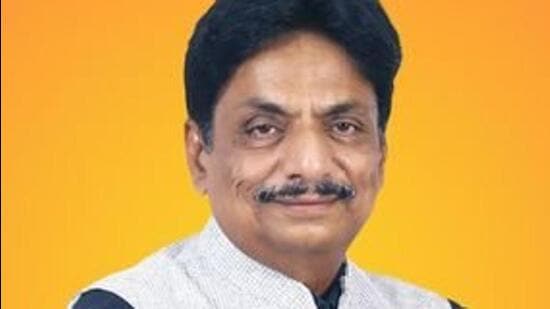River linking project stalled in Gujarat after tribals protest
Gujarat has asked the central government to put on hold the project connecting the Par, Tapi and Narmada rivers
Ahmedabad: Gujarat has asked the central government to put on hold the project connecting the Par, Tapi and Narmada rivers as the state government does not want to displace tribal people from their ancestral land, irrigation minister Rushikesh Patel told the assembly on Tuesday.

Residents of the region have been protesting the project since 2010, when it was first proposed. The latest agitation started in early March after Union finance minister Nirmala Sitharaman announced the Par-Tapi-Narmada (PTN) project, among other river-linking programmes, in her budget speech on February 1.
“The tribals, especially those residing in Ambaji to Umargaon areas, are of the view that many people from them will be displaced if the project is implemented,” Patel said. “Respecting their concerns, chief minister Bhupendra Patel and the party has decided against the project.”
The protestors were not satisfied with the minister’s statement.
“We will carry on our protest further if the Centre does not issue a notification calling off the project entirely, and not merely put it on hold,” said Roshan Sharoliya, a tribal from Ahwa, the headquarters of the Dangs district that falls under the project. “On April 1, about 20,000 tribals are going to carry out a rally in Songadh (in Tapi district) to press for their demands.”
Sharoliya, one of the organisers of the protest, however, welcomed the state government’s statement to halt the project. “About 50,000 to 70,000 people could have been directly affected if this project is implemented,” he said.
“For our protest movement, we have formed local organisations,” he said. “There are six dams that are proposed to be built in Gujarat, and we have formed dam-wise organisations like Bhekhad Sangharsh Samit, Chaans Mandva Dam Sangharsh Samiti, Zari Sangharsh Samiti and so on. Then we have also formed region-wise samitis like Dang District Sangharsh Samiti. There are no positions for political leaders as this is a mass movement.”
Many including Congress leader Anant Patel, who has a strong following in the tribal region, have supported the movement, he added. On Tuesday, MLA Anant Patel said the agitation will continue till the Centre issues a direction to scrap the project.
The decision to put the project on hold comes after a delegation of ministers and BJP leaders from Gujarat including tribal minister Naresh Patel, fisheries minister Jitubhai Kaprada, Mangrol BJP MLA and former tribal minister Ganpat Vasava, Valsad BJP MP KC Patel met Union jal shakti minister Gajendra Singh Shekhawat, Union home minister Amit Shah and discussed the issue, said minister Patel.
Assembly elections are due in the state later this year. There are 27 tribal seats in Gujarat and the PTN project passes through at least half of these constituencies.
The Centre has assured that until Maharashtra and Gujarat — the two states involved in the project — give their written consent for the project, it will be implemented, Gujarat BJP president C R Paatil told reporters on Tuesday.
Opposition parties have tried to instigate the tribals for their own benefit but the state government will never do anything that is against the interests of the tribal community, Paatil said.
The PTN river linking project envisages transfer of surplus water from west flowing rivers between Par and Tapi in Gujarat to water deficit areas in north Gujarat. The project mainly covers areas in southern Gujarat, but it also covers part of Maharashtra, north of Mumbai on the Western Ghats. The aim of project is to transfer the surplus waters of Par, Auranga, Ambica and Purna river basins to the Narmada canal command area after providing irrigation on the way.
While it is a central project, the responsibility to acquire land lies with the state governments.
About 6,065 ha of land will be submerged due to the proposed reservoirs, according to a report by the National Water Development Agency that deals with interlinking of rivers
A total of 61 villages will be affected, of which one will be fully submerged and the remaining 60 partly. The total number of affected families would be 2,509, of which 98 families would be affected due to the creation of the Jheri reservoir, the only one in Maharashtra, spread over six villages.
“The draft report of the project was misleading. It grossly underrepresented the number of people to be impacted by the project directly. Also, there was no clarity on the number of the people to be affected due to laying of 406km long main pipeline, besides sub canals and branch canals pipelines,” said Sharoliya.
Such projects need to be studied in detail for their impact on the people, environmentalist Mahesh Pandya said.
“This is not a pipeline project. Rivers can’t be interlinked in this way. The feasibility study of the famous Kalpasar project (to create a huge freshwater reservoir in Gulf of Khambhat) in Gujarat that was revisited by the government in 2003 is not done 19 years later,” said Pandya. “Also, there was no need for such a project (TPN) in south Gujarat, which does not face water scarcity.”





